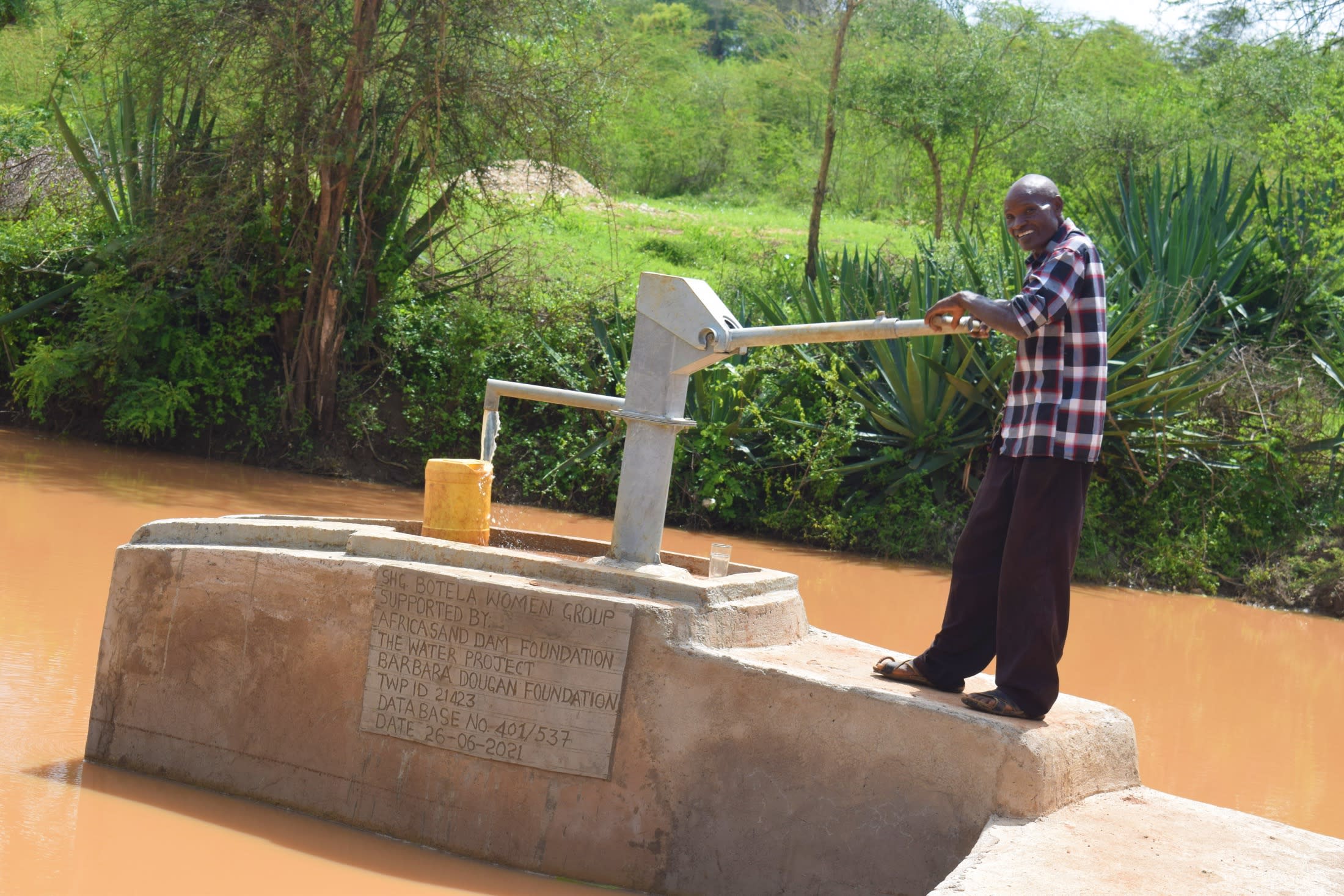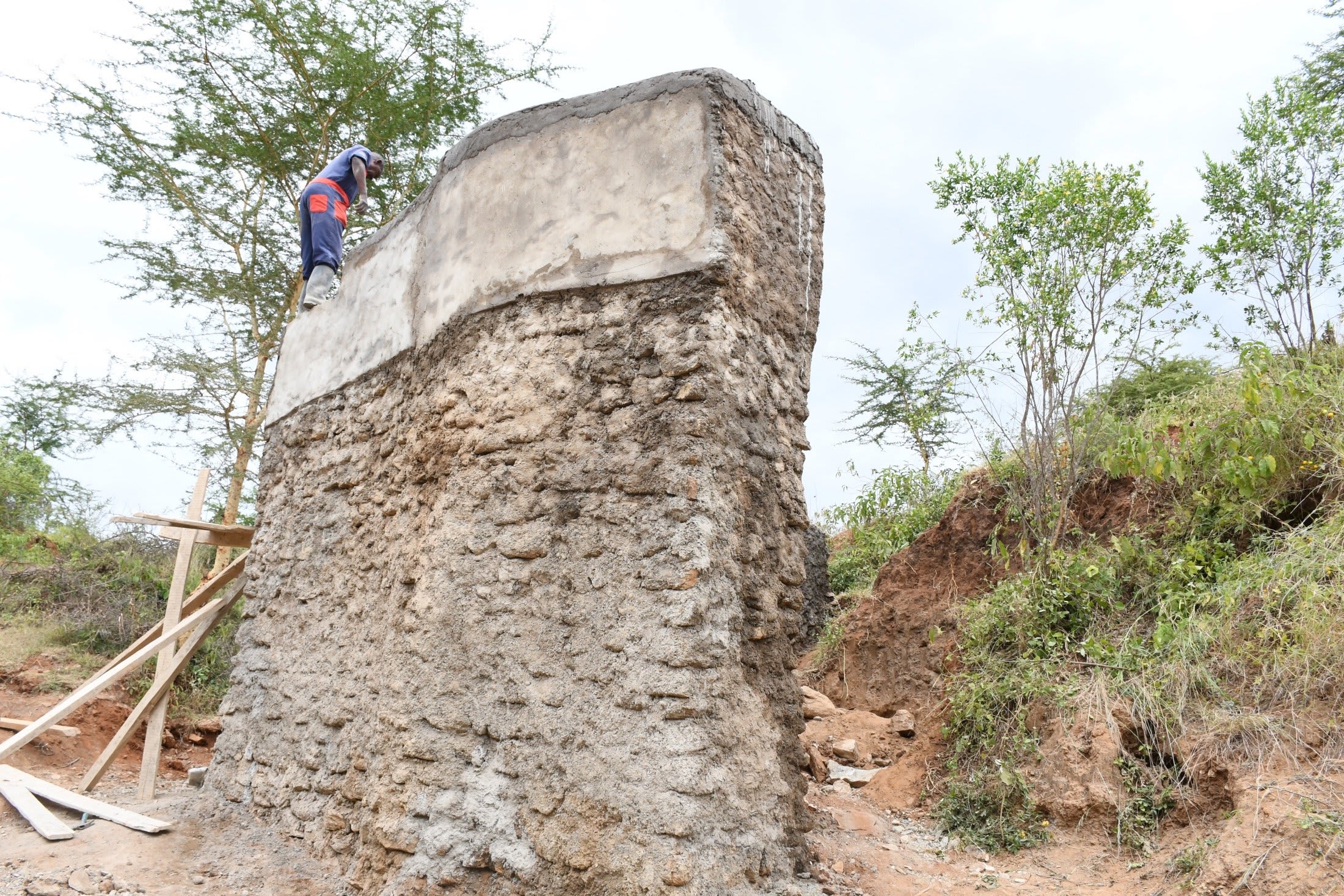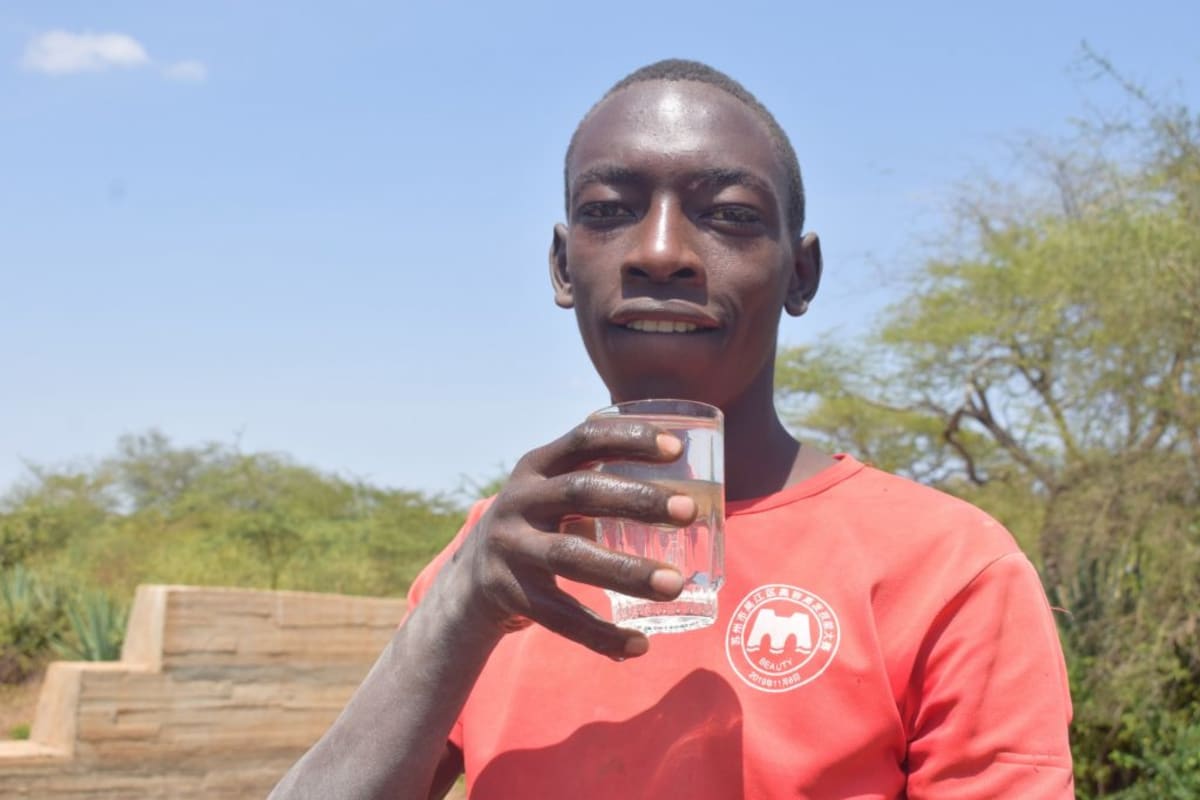An average day for the 500 people living in Kitile B Village begins by waking up at the wee hours of the morning, around 5:00 a.m., to walk to the nearest source of water. The primary water source is a river located between a 30 minute and 2-hour walk from homes here. People use open scoop holes to fetch their water and then return home. The chore is often delegated to the women and children.
Due to the challenge of water scarcity in the region, they often find long queues at the water point, and this may cause delays for the children, especially in arriving early at school. Community members have to rely on water from scoop holes dug along the river nearby, which is a seasonal river that dries up during the dry seasons - forcing the community to rely on water from Athi River, which is more than 4 miles away. It is very strenuous for them to walk this far, considering some do not have donkeys and have to carry their heavy containers on their backs. The water is not very clean as it contains a lot of contaminants.
"I have to walk very far to fetch water. The water is scarce, and it runs out very fast. It barely lasts us a year," said John M.
The region is arid due to climate change, and it has wavering rain patterns. The water that the community members rely on is polluted and very contaminated. They use open scoop holes, which they have to dig to fetch water for use. The river dries up very fast as a result of erratic rainfall patterns. Water from these scoop holes is inadequate to serve the entire community. The water is also relied on by our livestock, who have to directly drink from the same source, thus exposing the locals to risks of contracting water-related diseases. Often, the community members have succumbed to amoeba, typhoid, and dysentery because of drinking this water.
"Water scarcity is a great challenge in my family. We have to purchase water during the dry periods. Hygiene and sanitation practices are quite difficult to manage and sustain due to insufficient water. We neglect the basic cleanliness practices that we need to adhere to, such as bathing, washing the house, cleaning the clothes, among others. My children have been so used to fetching water after school for use at their homes and the strains of carrying water from the river at the scoop holes," explained Winfred Ndinda.
The most common livelihoods in this community are farming, casual labor jobs, and running small entrepreneurial businesses such as shops. Men tend to opt for motorcycle businesses to earn a living as it is the primary mode of transportation in the area. Households are made of bricks and iron sheet roofing. The homesteads are very sparsely populated as community members own substantial pieces of land.
Reliable Water for Kitile B Village
Our main entry point into Kitile B Village has been the Mbotela Women Self-Help Group, which is comprised of households that are working together to address water and food scarcity in their region. These members will be our hands and feet in constructing water projects and spreading the message of good hygiene and sanitation to everyone.
Hand-Dug Well
This particular hand-dug well will be built adjacent to a sand dam project, which will supply clean drinking water once it rains. We have provided the group with the tools needed for excavation. With our artisans and mechanics' guidance, the excavated well will be cased, sealed with a well pad, and then finished with a new AfriDev pump.
Excavation takes a month or more on average, depending on the nature of the rock beneath. Construction of the well lining and installation of the pump takes 12 days maximum. The well will be lined with a concrete wall including perforations so that once it rains, water will filter in from the sand dam.
This well will bring clean water closer to families.
New Knowledge
These community members currently do their best to practice good hygiene and sanitation, but their severe lack of water has hindered reaching their fullest potential.
We will hold hygiene and sanitation training sessions with the Self-Help Group and other community members to teach about essential hygiene practices and daily habits to establish at the personal, household, and community level. This training will ensure that participants know they need to make the most out of their new water point as soon as the water is flowing.
One of the most important topics we plan to cover is handling, storing, and treating water. Having a clean water source will be extremely helpful, but it is useless if water gets contaminated by the time it is consumed. We will also emphasize the importance of handwashing.
The community and we firmly believe that all of these components will work together to improve living standards here, which will help to unlock the potential for these community members to live better, healthier lives.
We typically work with self-help groups for 3 to 5 years on multiple water projects. We will conduct follow-up visits and refresher training during this period and remain in contact with the group after all of the projects are completed to support their efforts to improve sanitation and hygiene.

 Protected Dug Well
Protected Dug Well
 Rehabilitation Project
Rehabilitation Project

































